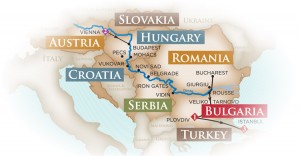Are you able to speak fluently a language other than your native one? Two such additional languages? Three? Four? Five? If you’re an American, you’re mostly answering no.
How many of my American colleagues/followers are able to deliver a quality professional presentation in a language other than their native one? To participate in a business meeting in a second language? A third? More? More nos?
And what about the senior executives of US-headquartered organizations? How many of them are comfortable conducting business in other than American English? Of even having a traveler’s basic grasp of two or three languages besides their native one? Yup, no again in most cases.
But ask those same questions of our European colleagues/followers, or those from many other parts of the world, and the answers would be quite different. The sad fact is that many of my American colleagues/followers haven’t even mastered proper American English, let alone a second or third major language. It makes me crazy when so-called educated Americans have only a limited grasp of grammar (which should include knowing when and how to use the subjunctive, my personal obsession) and of vocabulary (e.g. using incentivize when provide incentives works just fine or orientated rather than the already available oriented.)
But this post isn’t about my personal language obsessions nor about the lack of multilingualism among my American colleagues/followers. Rather, it’s about the incredible demand for and availability of multilingual front-line staff we experienced in our travels. And I’ll use just two examples of wait staff to shame all of you who need it into expanding your language skills.
When our cruise was interrupted by the Danube floods, our boatload of passengers was bused to Budapest where we were booked into the Hilton at Castle Hill instead of staying on the ship as planned. Along with our group, the Hilton became a refuge for other disrupted travelers as well as their regularly scheduled tour groups. So at the fabulous buffet breakfast the next morning, there were a dozen or more languages being spoken by the guests, and Hilton managed to have at least one wait staff person on hand who could speak every needed language. Many of the (mostly young) women wait staff spoke three or more languages — I heard them because I was being nosy! — and did so with at least enough facility to make themselves understood and to understand their guests. Clearly language KSAOCs are a big deal at the Hilton Budapest, and scheduling the right language KSAOCs for that day’s mix of guest languages without having more wait staff than are needed depends on have a highly multilingual wait staff on call.
But the Budapest Hilton was not an outlier. In Vienna, we stayed at the Intercontinental, and I observed the same phenomenon. At both breakfast and dinner, I couldn’t help but notice young women wait staff (not the highest paid job and certainly not one that, in the US, usually demands heavy duty language KSAOCs), early twenties at most, moving from German (their local language) to English (for us) to French, Spanish, and even some of the Cyrillic languages, which we found impossible even to pronounce. So impressed was I by this facility, that I “interviewed” one young woman about the requirements for getting a wait staff job, and not just at a major hotel, in Vienna. “Well, you must speak English, of course, and at least two other non-German languages, ideally one oriental one.” Right! Very sobering to know that I wouldn’t qualify for a wait staff position in Vienna.
So what’s my point? Our European colleagues and their educational systems have a huge leg up on the US when it comes to preparing their young people for a global economy. Ordinary young people are learning English, Chinese, and more from the earliest years of primary education, and language education is both expected and accomplished. Is that true for their American counterparts? Growing up in the 50’s and early 60’s, we studied Latin or Greek (required to get a college prep diploma) for at least two years plus a Romance language (which were a much bigger deal then) for at least four, and the best universities required this. Clearly that’s not the case today, and more’s the pity.
Learning another language early in life, as I did (to be sure, they were Yiddish and English), develops a facility for learning more languages as you go along. But it also improves a range of cognitive KSAOCs as well as our ability to think more globally. For example, in Spanish one says “to take” a decision rather than the English “to make” a decision, and this difference in language reveals a difference in culture and the way in which people think about collaboration and about arriving at a decision. Yes, it was sobering to know that I couldn’t qualify as a wait staffer in Budapest or Vienna. Could you?
